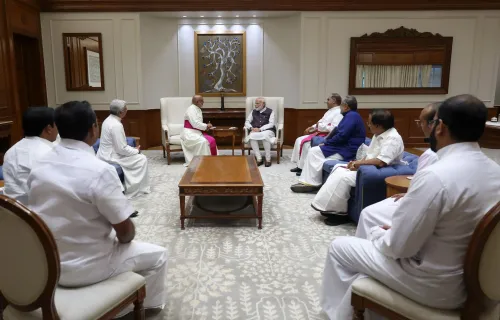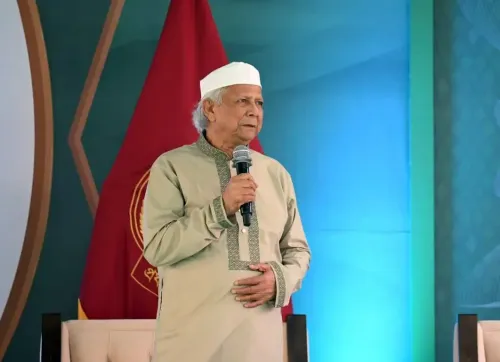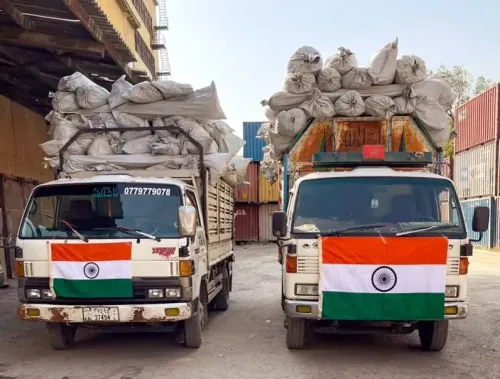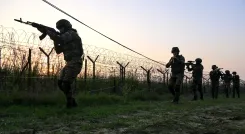Punjab Police Dismantles ISI-Supported Terror Network

Chandigarh, Dec 29 (NationPress) In a significant achievement, Punjab Police has successfully dismantled yet another terror network backed by Pakistan’s ISI, which was being run by Babbar Khalsa International (BKI) and led by foreign-based operatives Harpreet Singh, also referred to as Happy Passia, and Shamsher, known as Honey. This operation led to the arrest of five individuals, including the mastermind Abhijot Singh, who was involved in the attacks using hand grenades on two police establishments, as stated by Director General of Police (DGP) Gaurav Yadav on Sunday.
“By effectively dismantling this module, Punjab Police has resolved all incidents related to attacks on police establishments in the state,” remarked the DGP.
The other four suspects have been identified as Kuljit Singh, Rohit, also known as Ghessi, Shubham, and Gurjinder Singh, alias Raja, all hailing from Qila Lal Singh in Batala. The police have also seized two firearms, including a sophisticated 9MM Glock pistol, from their possession.
This development follows a series of incidents where hand grenades were thrown at the Ghaniae Ke Bangar police station in Batala on December 12 around 10:20 p.m., and an attack on the Wadala Bangar police post in Gurdaspur on December 20 at approximately 9:30 p.m.
After these incidents, the terrorist organization BKI claimed responsibility for the attacks through separate social media posts.
DGP Yadav stated that both Abhijot Singh and Kuljit Singh sustained bullet wounds when they attempted to evade capture by assaulting the police team, prompting the police to act in self-defense.
Both suspects have been admitted to Civil Hospital in Batala, where they are reported to be in stable condition, he added.
The DGP confirmed that investigations are ongoing to establish both forward and backward linkages in this case and to uncover the entire terror network.
Providing additional details, Deputy Inspector General of Police (Border Range) Satinder Singh mentioned that following the attacks on police establishments, Batala Police launched a special operation to locate the perpetrators.
Based on technical and human intelligence, police teams, under the guidance of Senior Superintendent of Police Suhail Qasim Mir, successfully tracked down and apprehended all suspects.
Mir further stated that ongoing investigations may lead to additional arrests and recoveries in the near future.









